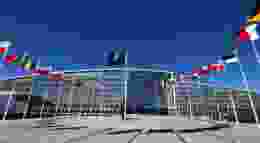
The Saudi-France partnership on Lebanon will fail unless Iran’s influence is curtailed
Despite joint Saudi-French efforts to alleviate the situation in Lebanon, current Iranian influence in the country stands in the way of such efforts producing any positive results, writes Dr Maurizio Geri.
It is time for the world to acknowledge Iran's Islamic Republic for what it is: an existential threat. The sceptical might ask what danger isolated Iran poses; it is true, after all, that Iran is militarily and economically quite inferior to the world's great powers. But Iran finds cracks where it can, widens them, exploits them – and worsens them.
The result is disastrous for any society Iran is capable of interfering in. And because even small interventions can have disproportionate consequences, even localized aggression can unleash global instability. Those who remember Syria's migrant crisis, and the impact on Western politics, understand this well.
Indeed, Iran's role in Syria foreshadows its potential for harm in Lebanon. In Syria, after all, Iranian resources, forces, and their allies consistently participated in horrific violence, indiscriminately massacring civilians – while backing a government that, quite arguably, used weapons of mass destruction on its own population.
Why would Iran act any differently towards the government of Beirut? By propping up Hezbollah, supporting bitter sectarianism, obstructing government services and independent investigations, Iran has guaranteed that Lebanon would remain under its brutal thumb. As for the costs to the Lebanese people? Iran seemed not to care.
This is why, as alarming as the situation in Lebanon is today, we should be mindful that it could become much worse – Iran has, after all, proven itself comfortable with atrocious and spectacular violence to defend its geopolitical position. While Lebanon's breakdown is heart-breaking to watch, it has yet to become violent.
But who in the world believes Hezbollah would not resort to violence if it believed the moment called for it? The international community must act decisively to prevent Lebanon from descending further into chaos, not least because that would send awful ripple effects across the Middle East and into Europe.
The international community can do this by embracing the promising French and Saudi Arabian initiative to aid Lebanon – and by simultaneously, and intelligently, increasing the rhetorical pressure on Iran, which is especially vulnerable in this moment to popular discontent and external opposition.
France and Saudi Arabia have demonstrated deep commitment to regional peace and security, from Crown Prince Mohammed bin Salman inviting talks with Iranian leaders to French President Emmanuel Macron visiting Beirut after 2020's port blast, indicating the seriousness with which he takes ties between the two countries.
At the moment, Lebanon is lucky to have friends like these, with the mullahs' aggression ensuring they are ever more isolated. But because Iran's people have not chosen this path, they are ever more likely to resist.
While Lebanon is suffering, and internal tensions there are rising, Iran is stricken – from the long-term consequences of COVID to drought and water shortages, political repression, damaging sanctions, and a population reasonably fed up with a disastrous foreign policy pursued at its own expense.
On Arab News' programme Frankly Speaking, French Senator Nathalie Goulet noted that widespread protests are convulsing Iran, with the country's population indignantly demanding that "Iranian money should go to Iranian hospitals, to Iranian schools, to the Iranian people school, and [not] to Hezbollah."
For the record, as Goulet noted, Iranians feel similarly towards other radical proxies, like the Houthis and Hamas.
For the international community, averting a meltdown in Lebanon should be a priority. That prevention requires supporting the French and Saudis not only counts as a win for multilateralism and diplomacy, but it necessitates taking a stronger stand against Iranian influence and machination.
Fortunate for the international community, then, that Iran's fortunes are at a low ebb; with a little pressure, the entire house of cards may topple.

Dr Maurizio Geri is a former senior NATO analyst, an Italian Navy Lieutenant reservist and EU Marie Curie postdoctoral fellow on "NATO-EU cooperation on emerging and disruptive technologies in the Energy-Resources-Climate Security nexus".






